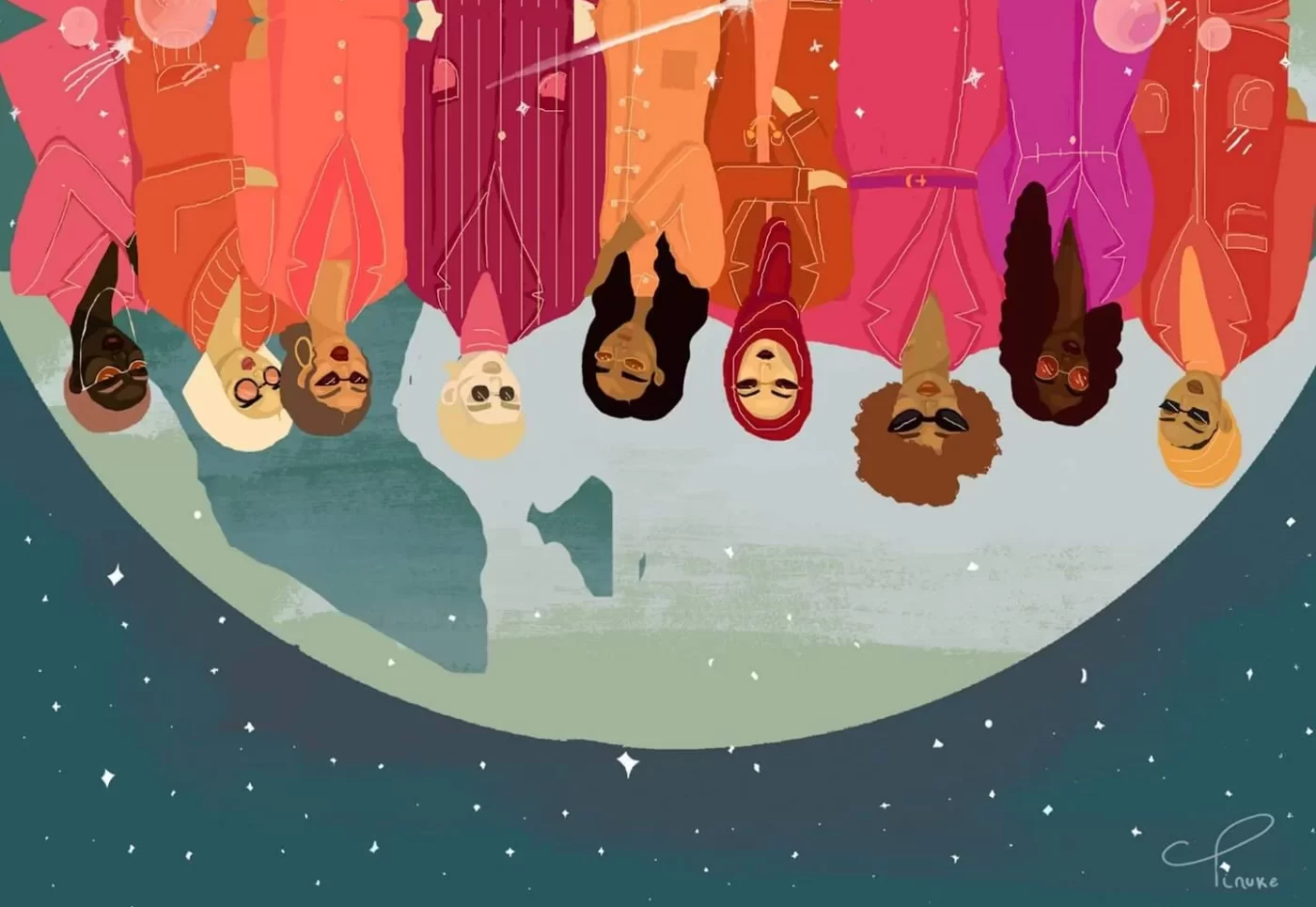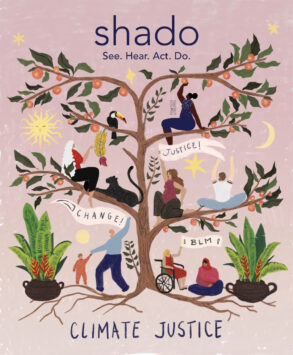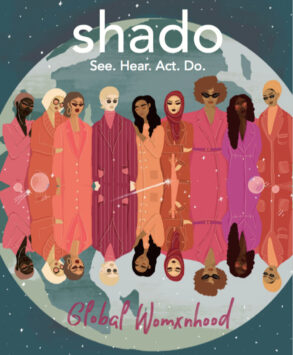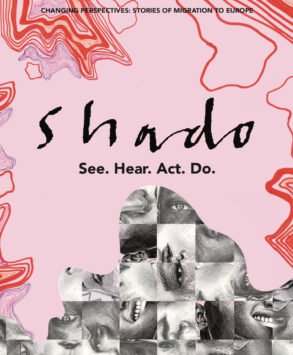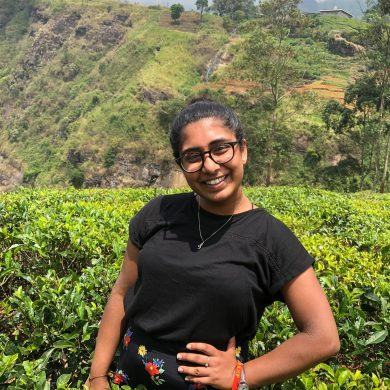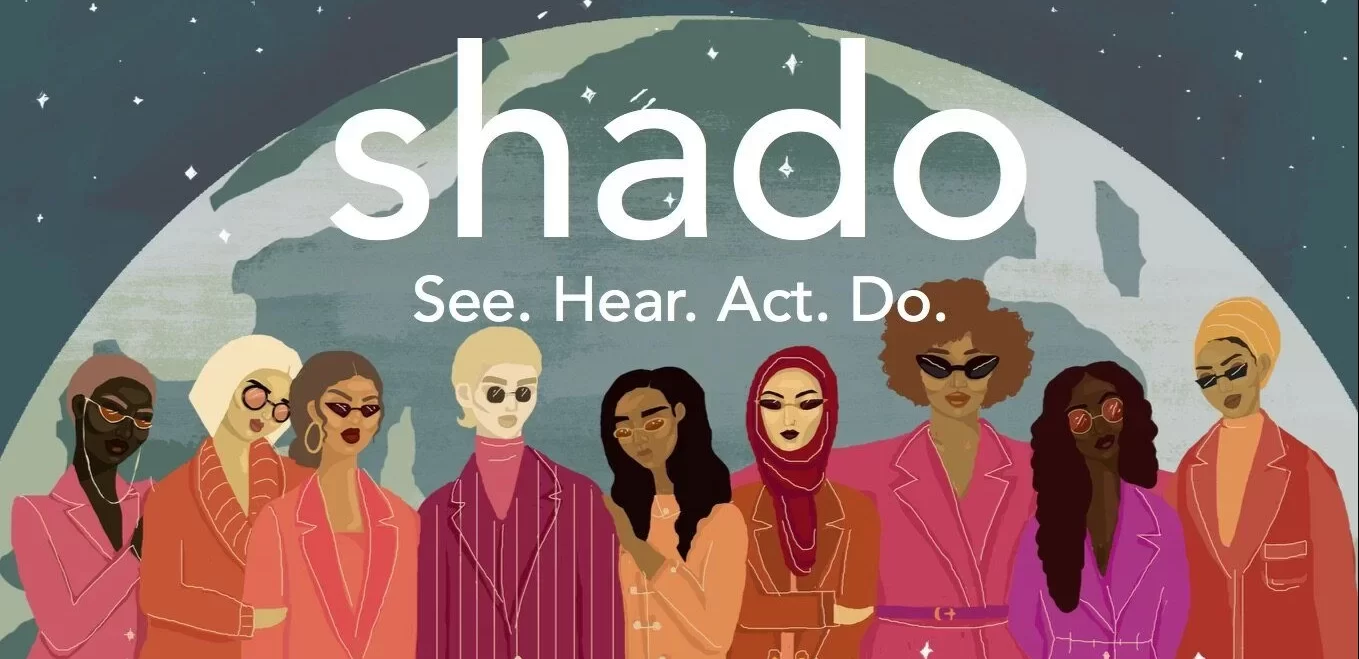
Mission
Mission
See. Hear. Act. Do.
shado is a lived-experience led community of artists, activists, organisers, creators and writers united in the fight for social justice and collective liberation.
shado exists to disrupt, diversify and decolonise the current arts and media landscape through amplifying the voices of people on the frontline of social change, and connecting individuals and organisations which might otherwise have been working in siloes.
At shado, we believe those with lived experience of an injustice or issue are best placed to advocate for meaningful change within that space. We’re driven by collaboration and connecting different fields to create greater impact, re-imagining current systems of marginalisation and working together to create new ones.
We therefore have implemented a range of activities to create a supportive ecosystem for lived experience-led narratives and community-driven solutions.
These activities include:
Print + online magazine
Workshops
Podcast
Mentorship programme for first-time, minoritised writers
Documentary creation
Online book club
Knowledge Pages
Exhibition curation and distribution of artist grants
Collaborative community projects
Grassroots partnerships
Who We Are
Who We Are
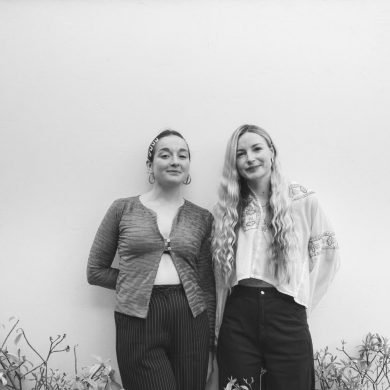
Hannah Robathan and Isabella Pearce, UK
Co-founders
Why did you set up shado?
After volunteering together extensively in Northern France and London with refugees and people seeking asylum, then both doing MA degrees in Development, we were both pretty frustrated by the lack of dialogue between activism and academia – and primarily in the top-down politics of so-called social change. So we created shado to change this: to make these connections and fill in the gaps in an accessible way.
Our work is rooted in connecting artists, activists and journalists. We think these are three sectors which are pioneering change, but are often unfortunately working in separation. We want to connect these fields because we believe not only that the mission they’re working on is so often aligned, but also because greater impact can come through collaboration.
shado is a platform for people to tell their own stories and take control of their own narrative, rather than being spoken for or about.
It’s growing by the day and we’re so excited by the community of activists, artists and journalists we’re lucky to work with across the world.

Erin Cobby, UK
Senior Editor
What excites you about the changes you are seeing in the media industry?
The current media landscape excites me as it’s never been easier to self-publish, meaning that diverse voices are creating their own platforms like never before. This is also tied-in with the revolutionary power that zines can have, so while there’s still a major uphill battle concerning the white male dominated media space, there’s change on the horizon! I’m also hyped that the predicted demise of print doesn’t seem to have happened in the way people thought, as I love holding physical copies of newspapers and magazines, shado, of course, being my favourite!
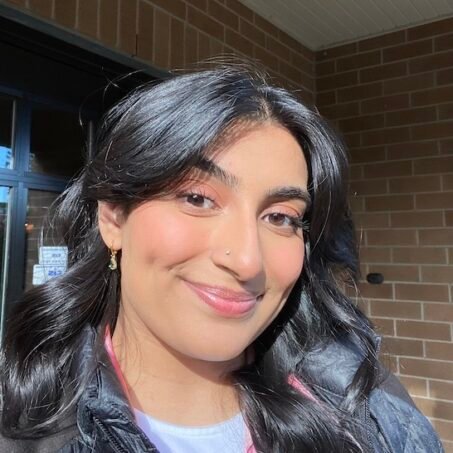
Jeevan Sangha, Canada
Senior Editor
What topics inspire your work and how does the diasporic community around you influence this?
Growing up as a second-generation Punjabi immigrant in Surrey, Canada, I felt grounded in my culture through the people in my community, and the media I consumed. Indulging in music, film and television was a big part of how I grew into and reckoned with my identity. I'm inspired by reporting on how we build community around art and how it reflects the resilience of my community. Media and art are such a core pillar through which we process the world around us, and engaging with it meaningfully helps us understand how we identify with each other, with powerful institutions, with social movements and more. Plus, I'm chronically online so there's always that.
How does the Punjabi diaspora inspire your work?
The Punjabi community in general is so resilient and moving through the world as a Sikh-Punjabi woman is an immense privilege. I care about my community and I've centered a lot of my work around sparking conversations about the injustices faced by our community in the global sphere, while also being critical of which members of our own community get marginalized and excluded time and time again. If we don't at least start the conversation, nothing changes.

Isabella Yasmin Kajiwara, UK
Editor + Grassroots Strategy & Community Partnerships
What type of community activism are you most excited by and why?
Honestly, in these times we are living in, community activism of any sort energizes me and gives me hope. I'm grateful for every forward step thats made, every risk taken, and every person's efforts to step outside of their own inner world to connect with those around them.
However, what excites me most are the groups that are consciously moving away from reactive activism and instead engaging in alternative world-building right here and right now. It's the groups daring to experiment in otherwise - creating new education systems, sharing knowledge about how we can use herbalism to develop autonomous healthcare infrastructures, or even building their own transformative justice processes outside of the criminal justice carceral state.
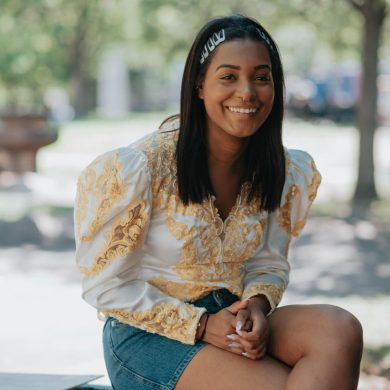
Addis Fouche, USA
Editor
What role can storytelling through writing play in creating change?
Writing is an incredibly important art form because it can both humanize people and de-mystify complicated ideas in a relatively accessible way. You can re-read, pause as necessary, or otherwise take your time digesting ideas that are foreign or even somewhat familiar. I began writing during kindergarten in my daily journal, where I recorded a single sentence that described my day. An all-time favorite entry of mine reads: "I went to see the Emperor's New Groove"! Years later at boarding school I was encouraged by my English teacher to write short stories, and I started writing personal essays in college. People often joke that "I always have something to say", and that's true; however, I'm happy to share those thoughts with those who may need to hear them.
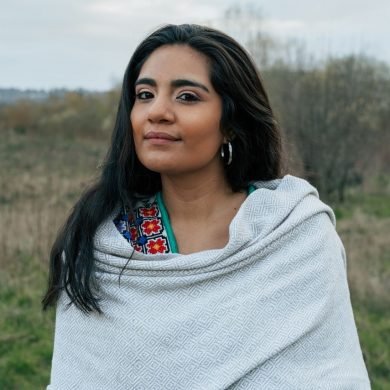
Samara Almonte, USA
Editor
What role does healing need to play in our social movements?
Healing is critical to all social movements, because regardless of the issue we are trying to address, the root of the problem stems from White supremacy, capitalism and colonialism. These systems are inherently built to strip us from our humanity and the possibility of kinship. By centering healing in our social movements, not just at the individual level but at the collective level as well, we are practicing self-determination. By healing at the collective level this is where I believe we can center kinship and think about how we are part of many systems, including ecosystems that put us in relationship with our non-human relatives. Sometimes in social movements we only focus on the dismantling and at times violent actions that need to take place in order to achieve self-determination. However the real exciting and harder part I see in these movements is the rebuilding. How are we going to build new systems that center healing and care for all? These are the hard questions because it means thinking about what things like transformative justice, disability justice, liberation, etc, look like in practice.
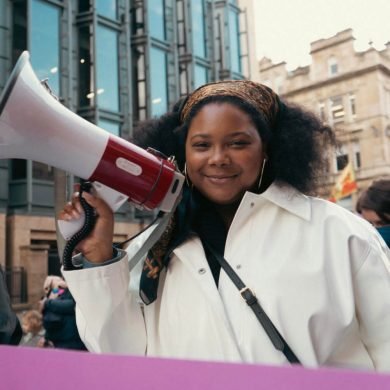
Larissa Kennedy, UK
Editor
What role do you see young people playing in the re-imagining of our current structures?
In a world that constantly teaches us to accept things as they are, it’s easy to end up fighting for tweaks and small-scale changes that tinker at the edges of a fundamentally broken system. Many campaigns and movements have fallen in the trap of doing so and - by extension - reifying the system they’re seeking to deconstruct. Movements led by young people, young workers and students have historically challenged this lens, pushing for more radical and imaginative alternatives.
As this ongoing awakening of young people’s agency continues to be resisted, co-opted and diluted by the system itself, it's crucial that we harness the power of dreaming in our movements and in our organising. By upholding a collective belief that another world is possible: young people can propel forward fresh ideas about how we build communities committed to economic justice, climate justice, housing justice and health justice; how we build a world rooted in safety, liberation and collective care.
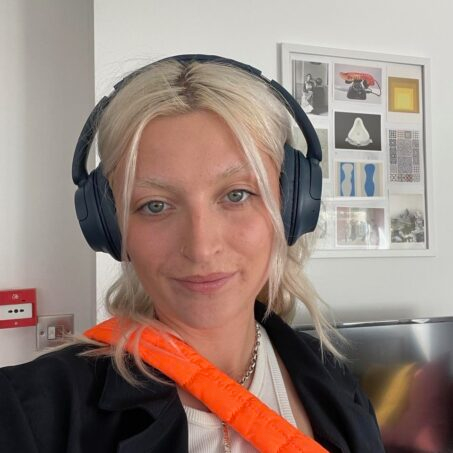
Zoe Rasbash, Spain
Editor
What role can pop culture play in building our movements?
We consume so much stuff-content-media-whatever every day, whether we want to or not. Investigating how ideas, iconography, values and references flow from the margins to the mainstream through cultural exchange, social media, film, music, TV etc. helps us better understand how society is being remade constantly.
Engaging meaningfully with what is considered 'low-brow' culture (aka my fave stuff - Love Island, TikTok, Gogglebox, Netflix rom coms, I'm basic!!!), we can uncover: what norms are being reproduced and reflected? How are radical progressive understandings of society being taken up and normalised, or conversely, co-opted and depoliticised? What do people like right now and why??? I love to deep it!! Watching something and unpicking what it might tell us about who we are, and what modes of understanding the world are profitable right now. When we look closely, we can see how culture is subtly wielded to reinforce existing power structures... and therefore makes clearer how we might dismantle and disrupt them.

Tommy H, UK
Editor
Why is it so important to connect journalism with frontline activism?
I think journalism at its core should not be an elite operation, where publications are funded by bloated corporations with vested interests in capital. To me, the best journalism understands current global struggles, creates awareness of important campaigns and connects disparate movements together to unite and fight for real progress in our world. Frontline activists are at the heart of the change we desperately need in our society – shado is doing vital work in giving a platform to their efforts.
Sharlene Gandhi, Canada
Editor and Host of shado’s Bookshelf
Who is your favourite author and why?
My favourite author, who seems to glide effortlessly between fiction and non-fiction, is James Baldwin. It takes incredible courage to write the way he has written, and stunning attention to detail to craft fictional characters in a backdrop of frightening, macro realities. Giovanni's Room touched me deeply.
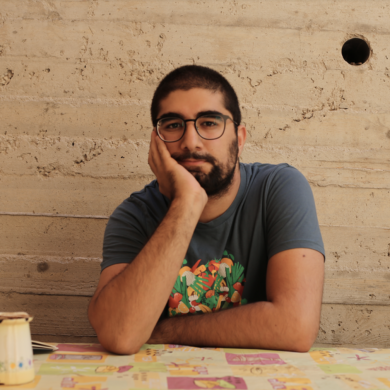
Elia J. Ayoub, UK
Editor
What experiences have shaped and inspired your work?
I grew up as the son of the 'war generation' in Lebanon and have experienced multiple traumas despite now being in the supposed 'post-war'. That contradiction alone made me very critical of hegemonic discourses around the world, especially when it comes to human rights, and has allowed me to understand power dynamics better. In the past few years I've turned that energy beyond Lebanon as well to include various countries and diasporas around the world as well as the climate crisis, among other things.
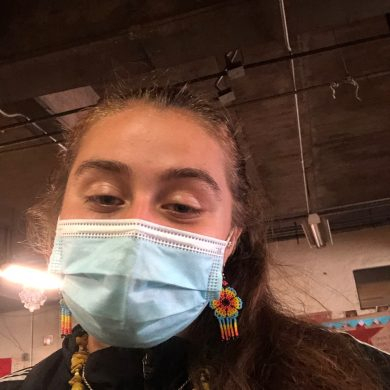
Marina Tricks, Mexico
Editor
Why is it so important to connect conversations around social justice with people mobilizing against these struggles on the ground?
Connecting conversations around social justice with people and communities on the ground is not only necessary but essential. Listening to intellectual theories in isolation, without listening to on the ground realities, not only denies us the ability to understand the diversity of struggles being fought but it also erases communities in discussions and enables those that have easier access to a mic to take up the whole conversation.
In different places the complexities behind struggles, the security issues at hand, the support that is wanted, and the vision communities/movements have, differ depending on their contexts. Co-sharing through conversations allows us to harmonize these in line with each other and offers space for collective learning and long-term building. Conversations also build solidarity in the real sense, with respect for communities’ autonomous processes. The direct communication means that e.g. the message that the community wants to transmit and how they want to do so, can get highlighted, rather than one that may be assumed by an outsider. It also allows us to understand the Global nature of the struggles at hand, as one begins to see that the struggles faced on a local level are shared on a global level, forming unity between our Global Majority siblings.
Finally, solutions that are made without those on the ground are merely impositions. By listening to each other, we can begin to collectively re-imagine the world around us to form one in which many world’s fit.
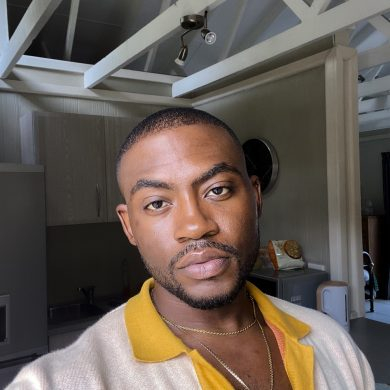
Adebayo Quadry-Adekanbi, UK/Nigeria
Editor
What can a queer lens bring to the contemporary conversation around literature, art and music and why is this so important?
The value of a queer lens in discussions of literature, art, and music can only be fully understood by unpacking how “queer” can be utilised. I do not see or use "queer" simply as a synonym for "LGBTQI+", an acronym that obscures considerable differences, such as trans* existences. Instead, I use "queer" in the sense that Stella Nyanzi describes, as "an open invitation to all of us opposed to essentialist patriarchal heterosexist heteronormative binary configurations of sexual orientations and gender identities."
In this regard, a queer lens offers an imaginative, radical, and revolutionary view of literature, art and music. It has the potential to redefine how we conceptualise, create and interact with these mediums. The potential for ongoing critical engagement of global politics and history within queer politics makes a queer lens an open-ended discussion that accounts for differences while recognising exclusionary practices. This is important for understanding creative mediums, which are open to subjective interpretations but not removed from the complexity of power dynamics and institutionalised systems of violence.

O’Niel Leadon, The Bahamas
Editor
What currently excites you about the climate justice movement?
The thing that currently excites me about the climate justice movement is the growing presence of youth activists and advocates. These young people are changing the narrative and taking the needs of their communities into their own hands by challenging their governments, holding mega-corporations accountable and using limited and/or free resources to create content and promote youth-led climate action. It feels like we’re witnessing a paradigm shift in real time and that’s incredibly exciting to me, to be a part of the generation that tackles the climate crisis.
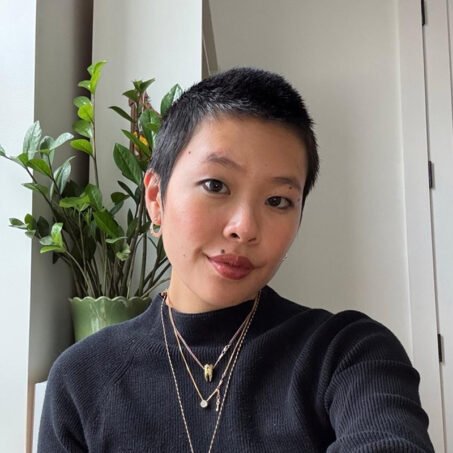
Ning Chang, USA
Culture Editor
What is a piece of culture which has shaped you as a writer?
I love thinking about or observing any piece of culture that has a strong and passionate community surrounding it — to me, that is the true marker of cultural impact. If there isn't a heart-wrenching Tik Tok edit of it, an AO3 unfinished masterpiece of it, people who aren't willing to go deep on it with citations... it's not worth it.

Alexandra Diamond-Rivlin, UK
Culture Editor
What is a film that has shaped you as a writer?
I discovered a short film entitled “You Will Be Free” by Juliet Jacques while a student at Central Saint Martins. A series of reflections on HIV/AIDS, illness, life, and death, it fundamentally shifted how I perceived the radical, creative, and spiritual potential of art. I was particularly drawn to Jacques’s use of archival material – how she made the history and political context of the crisis seem alive and burning. The film directly references the drawings and texts of artists Cookie Mueller & Vittorio Scarpati, which were developed while the two lovers were dying from the disease in 1989. Jacques’s contemplations on the themes of love and grief – and the tension between them – were so moving, and encouraged me to explore similar ideas in my own writing (such as an essay for The World of Interiors) related to the body, identity, memory, and queerness.
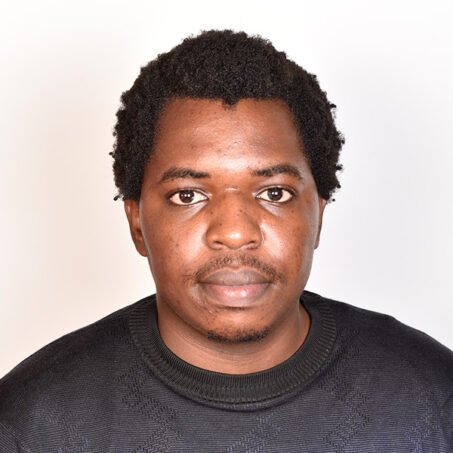
Steve Williams, Kenya
Reddit Manager
What’s your favourite subreddit?
My favourite subreddit is r/LandlordLove which despite its name is a tenant-centered subreddit for sharing both personal experiences and broader systemic issues and failures related to landlord behaviour. In short, the harmful impacts of landlordism especially how it relates to the working class people.
